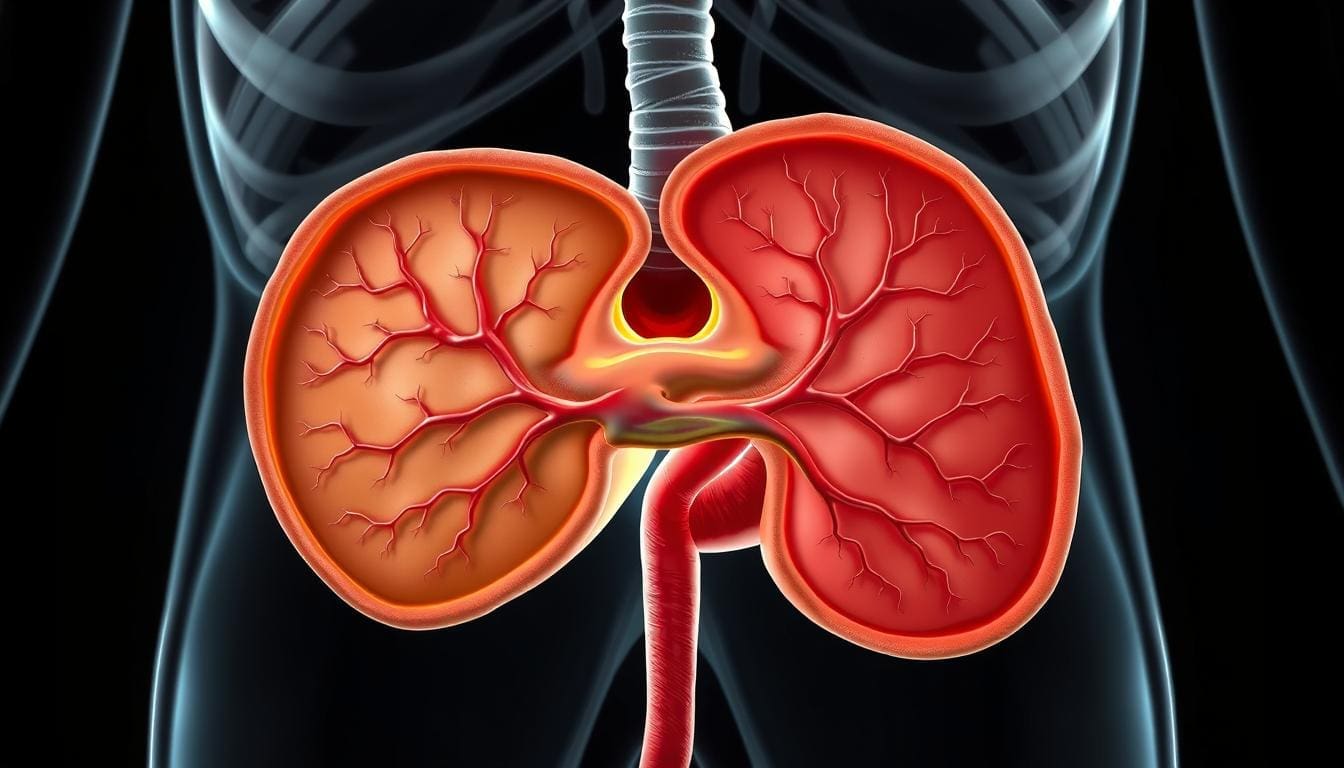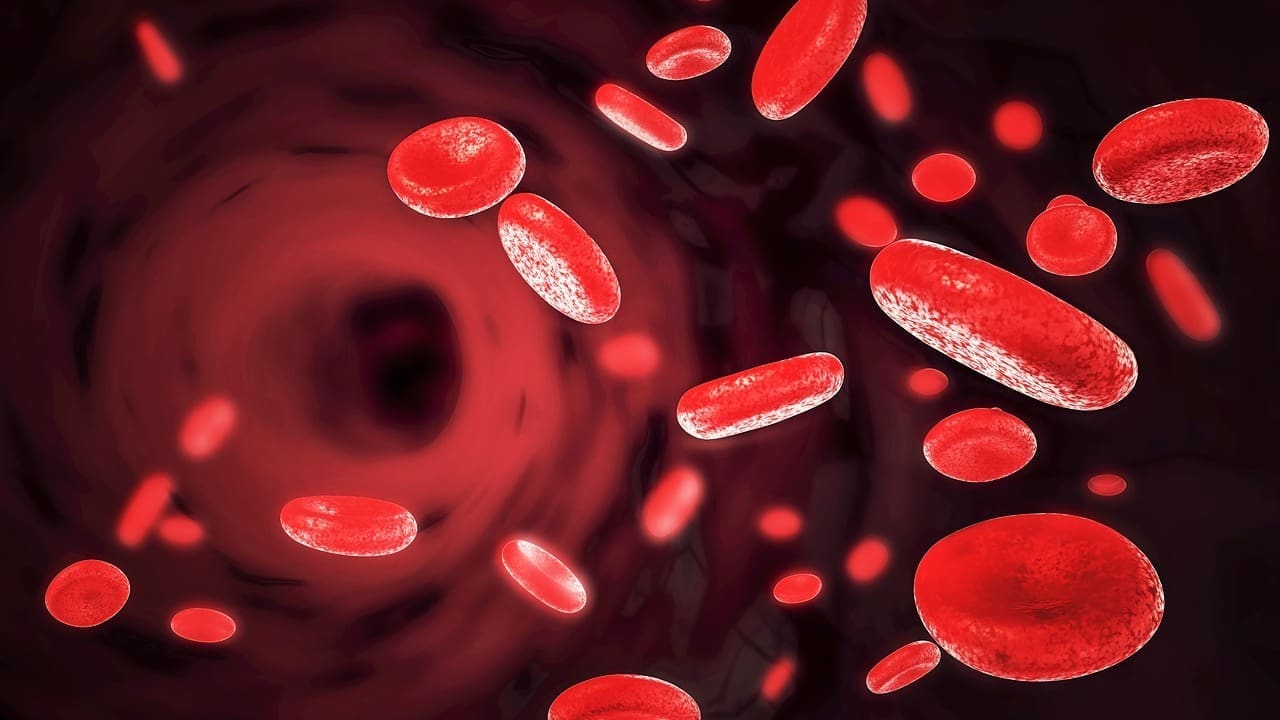Last Updated on November 26, 2025 by Bilal Hasdemir

Adrenal cortical cancer is a rare and aggressive cancer. It starts in the outer layer of the adrenal gland. This condition deeply affects patients and their families.
At Liv Hospital, we offer top-notch care for those with this rare condition. Our team is known worldwide for its expertise in treating this challenging disease. We use the latest treatments to help our patients.
Key Takeaways
- Rare cancer that requires specialized care
- Aggressive malignancy with significant impact on patients and families
- Liv Hospital offers comprehensive and cutting-edge treatments
- Internationally trusted expertise in cancer care
- Personalized support for international patients
Understanding Adrenal Cortical Cancer
Adrenal cortical cancer, also known as adrenocortical carcinoma (ACC), is a rare tumor. It starts in the adrenal cortex. This cancer affects hormone production in the body a lot.
Definition and Classification
Adrenocortical carcinoma is a cancer that starts in the adrenal cortex. This is the outer layer of the adrenal gland. It’s hard to classify these tumors because they can act differently.
Tumors are sorted by size, how they look under a microscope, and if they make hormones. This helps doctors understand and treat them.
Prevalence and Demographics
Adrenal cortical carcinoma is very rare. It happens in about 1-2 cases per million people each year. It can happen to anyone, but it’s more common in adults in their 40s and 50s.
| Age Group | Incidence Rate |
|---|---|
| 0-19 years | 0.2 per million |
| 20-39 years | 0.5 per million |
| 40-59 years | 1.5 per million |
| 60+ years | 2.0 per million |
We will keep sharing detailed info on adrenal cortical cancer. Our goal is to make sure our content is easy to read and helpful to people looking for advanced medical care.
Anatomy of the Adrenal Glands
The adrenal glands are key to our hormonal balance. They are small, triangular glands on top of each kidney. They help produce hormones that control many body functions.
Structure and Location
The adrenal glands sit in the retroperitoneal space, on top of each kidney. They have two main parts: the outer cortex and the inner medulla. The adrenal cortex makes steroid hormones like cortisol and aldosterone. The adrenal medulla produces catecholamines, such as adrenaline.
Function and Hormone Production
The adrenal glands make many hormones important for balance. The adrenal cortex makes cortisol, helping us deal with stress, and aldosterone, which controls blood pressure. Most adrenal tumors make too much of these hormones, causing symptoms.
A doctor, treats hormone imbalance issues, including adrenal cancer. Knowing how the adrenal glands work and how tumors affect hormone production is key to treating adrenal cancer.
Types of Adrenal Cortical Cancer
Adrenal cortical carcinomas are mainly divided into two types: functional and non-functional tumors. Each type has its own set of symptoms and treatment options. Knowing the type is key for diagnosis and care.
Functional Tumors
Functional tumors make too much of certain hormones. This can lead to symptoms like Cushing’s syndrome. Symptoms include weight gain, high blood pressure, and muscle weakness.
An expert in hormone disorders, says symptoms can vary. A detailed check-up is essential. Common signs include:
- Weight gain or redistribution
- Muscle weakness
- Hirsutism or irregular hair growth
- Menstrual irregularities
Because of their symptoms, functional tumors are often caught early. Treatment aims to balance hormones and remove the tumor.
Non-Functional Tumors
Non-functional tumors don’t make too much hormone or make hormones that don’t cause symptoms. They are often bigger and more advanced when found. Symptoms can include abdominal pain or discomfort.
These tumors are often found by accident during scans for other reasons. Treatment usually involves surgery to remove the tumor. This is because they can grow large and invade nearby areas.
Dealing with adrenal cortical cancer is tough. Our team is here to help. We provide full care and support to ensure the best treatment results.
Signs and Symptoms of Adrenal Cortical Cancer
It’s key to spot the signs of adrenal cortical cancer early. This helps in treating it well. The symptoms can differ a lot, mainly because of the tumor’s hormone-making ability.
This shows how vital early care and treatment plans are. Knowing the many symptoms of adrenal cortical cancer helps doctors give better support.
Symptoms of Hormone-Producing Tumors
Hormone-making tumors can cause many symptoms. For example, too much cortisol can lead to Cushing’s syndrome. This includes weight gain, high blood pressure, and skin and hair changes.
“The symptoms can be quite pronounced and may include muscle weakness, fatigue, and mood changes,” notes a specialist. The extra hormones can really affect a person’s life. So, finding and treating it quickly is very important.
- Weight gain and redistribution
- Hypertension
- Hirsutism or virilization
- Mood swings and psychological changes
Symptoms of Non-Functional Tumors
Non-hormone-making tumors can cause symptoms too. These symptoms come from the tumor’s size and how it affects nearby areas. Common signs are belly pain, feeling full, or noticing a mass.
One patient said, “I had ongoing belly pain due to a big non-functional tumor.” These symptoms can be hard to pinpoint. That’s why doctors need to do detailed tests and scans.
We stress the need for a detailed medical check-up. This is to catch the cancer early and accurately.
Causes and Risk Factors for Adrenal Cortical Cancer
The exact causes of adrenal cortical cancer are not fully understood. But, research suggests that genetic mutations and inherited syndromes are key factors. Knowing these can help find people at risk and create better treatments.
Genetic Mutations
Genetic mutations are changes in our DNA. In adrenal cortical cancer, some mutations are linked to the disease. For example, changes in the TP53 gene, a tumor suppressor, raise the risk. Also, too much IGF2 can help tumors grow.
“Genetic mutations play a big role in adrenal cortical cancer risk,” says a top researcher. “Finding these mutations can lead to early detection and better treatment plans.”
Inherited Syndromes
Inherited syndromes can raise the risk of certain cancers, like adrenal cortical cancer. Li-Fraumeni syndrome, linked to TP53 mutations, is one example. People with this syndrome are more likely to get several cancers, including adrenal cortical cancer.
- Li-Fraumeni syndrome
- Beckwith-Wiedemann syndrome
- Familial adenomatous polyposis (FAP)
Understanding inherited syndromes in adrenal cortical cancer helps find at-risk individuals. “Knowing genetic risks is key to personalized medicine,” says a genetic oncology expert.
Diagnosis Methods
We use many tools to find adrenal cortical cancer. This ensures we treat it right and fast. Finding this cancer involves checking if it’s there and how big it is.
Physical Examination and Medical History
First, we do a full check-up and ask about your health history. We look for signs like belly pain or hormone issues. Your past health can also help us see if you might have a tumor.
Laboratory Tests
Lab tests are key in finding adrenal cortical cancer. We check hormone levels like cortisol and aldosterone. We also test your blood to see how healthy you are.
Here’s a list of lab tests we use:
| Test | Purpose | Significance |
|---|---|---|
| Hormone Level Tests | Measure cortisol, aldosterone, and androgen levels | Identify hormonal imbalances indicative of functional tumors |
| Blood Chemistry Tests | Assess overall health and detect abnormalities | Provide insights into the patient’s general health and possible metastasis |
| Liver Function Tests | Evaluate liver health and function | Help determine if the cancer has spread to the liver |
Imaging Studies
Imaging is vital for finding and knowing how bad adrenal cortical cancer is. We use CT scans, MRI, and PET scans. These help us see the tumor and if it’s spread.
It’s important to catch cancer early. By using checks, tests, and scans, we can find adrenal cortical cancer. Then, we make a plan to treat it.
Staging and Prognosis
Staging and prognosis are key in treating adrenal cortical cancer. They help decide the best treatment and predict outcomes. Getting a cancer diagnosis can be tough. Knowing the disease stage and prognosis helps patients and families make informed choices.
TNM Classification System
The TNM system is used to stage adrenal cortical cancer. It looks at the tumor size, nearby lymph nodes, and distant metastasis.
Here’s how the TNM system works:
| TNM Category | Description |
|---|---|
| T1 | Tumor ≤5 cm, no invasion of surrounding tissues |
| T2 | Tumor >5 cm, no invasion of surrounding tissues |
| T3 | Tumor of any size with invasion of surrounding tissues |
| N0 | No regional lymph nodes involved |
| N1 | Regional lymph nodes involved |
| M0 | No distant metastasis |
| M1 | Distant metastasis present |
Survival Rates and Prognostic Factors
Survival rates for adrenal cortical cancer depend on the stage at diagnosis. Early diagnosis means a better prognosis. We use the TNM system to predict survival and guide treatment.
Prognostic factors that affect survival include:
- Tumor size and stage at diagnosis
- Presence of metastasis
- Patient’s overall health and age
- Effectiveness of the initial treatment
Studies show that survival rates are higher for localized cancer than for metastatic cancer.
Every patient’s case is different, and prognosis can vary. Our team is dedicated to providing personalized care and support. We aim to help patients and their families through their diagnosis and treatment.
Treatment Options for Adrenal Cortical Cancer
At Liv Hospital, we use a team approach to treat adrenal cortical cancer. We offer the latest treatments. Our experts tailor care to each patient’s needs.
Surgical Interventions
Surgery is often the first step for treating adrenal cortical cancer. Surgical interventions aim to remove the tumor and affected tissue. We use advanced techniques to reduce risks and help with recovery.
For big tumors or those near other structures, complex surgical procedures might be needed. Our skilled surgeons perform these detailed operations. They aim for the best results for our patients.
Medication and Hormone Therapy
For tumors that produce hormones, hormone therapy helps manage symptoms. Medications control hormone levels and ease symptoms.
In some cases, medication treats the cancer itself. This can be with surgery or alone. We work with patients to find the best medication plan.
Chemotherapy and Radiation
Chemotherapy is used for advanced or spread cancer. It’s a valuable option, even if it’s not always effective.
Radiation therapy helps with symptoms or treats local disease. We use advanced methods to target tumors precisely. This reduces harm to healthy tissue.
We’re committed to top-notch healthcare. We keep up with new treatments. This ensures our patients get the best care.
Advanced and Metastatic Disease Management
Managing metastatic adrenal cortical cancer is complex. It involves different treatments. As the disease gets worse, the goal changes to easing symptoms and improving life quality.
Treatment Approaches for Advanced Disease
Advanced adrenal cortical cancer treatment is customized for each patient. We use a variety of treatments, like surgery, medicine, and hormone therapy. These help manage symptoms and slow the disease.
For those with advanced disease, palliative care is very important. It helps with pain, hormone issues, and mental support.
Managing Metastatic Spread
It’s key to manage metastatic spread to improve patient outcomes. We use different diagnostic tools to track the disease. Then, we adjust treatment plans.
Managing metastatic adrenal cortical cancer needs a team effort. Collaboration is essential for a treatment plan that meets each patient’s needs.
Current Research and Emerging Treatments
The field of treating adrenal cortical cancer is changing fast. New research and treatments are coming up. These aim to better patient outcomes and improve life quality.
Clinical Trials
Clinical trials are key in finding new treatments for adrenal cortical cancer. They test new therapies’ safety and how well they work. This gives patients access to new treatments they might not get elsewhere.
There’s a big increase in trials for targeted and immunotherapies. For example, PD-1 inhibitors and tyrosine kinase inhibitors are showing great promise.
| Trial Name | Therapy Type | Status |
|---|---|---|
| Trial ABC123 | PD-1 Inhibitor | Ongoing |
| Trial DEF456 | Tyrosine Kinase Inhibitor | Recruiting |
| Trial GHI789 | Combination Therapy | Active |
Innovative Therapeutic Approaches
Researchers are also looking into new ways to treat adrenal cortical cancer. They’re exploring personalized medicine and oncolytic virus therapy. These methods aim to target cancer cells more effectively.
Advances in radiation therapy and surgical techniques are also happening. These are becoming more precise and effective. These new treatments offer hope for those with adrenal cortical cancer.
Conclusion
Understanding adrenal cortical cancer is key for patients. It helps them deal with diagnosis and treatment. At Liv Hospital, we focus on advanced treatments and care for international patients.
We talked about the need to recognize cancer signs and symptoms. We also discussed the different treatments and how genetics play a role.
Managing adrenal cortical cancer requires a team effort. This includes surgery, medication, hormone therapy, and sometimes chemotherapy and radiation.
Liv Hospital is committed to top-notch healthcare. We make sure international patients get the support they need during treatment.
FAQ
What is adrenal cortical cancer?
Adrenal cortical cancer is a rare and aggressive cancer. It starts in the adrenal glands. It can make too many hormones or not make any at all.
What are the symptoms of adrenal cortical cancer?
Symptoms depend on the tumor type. Functional tumors cause hormonal imbalances. This can lead to weight gain, high blood pressure, or changes in body hair.
What is adrenal cortical cancer?
Adrenal cortical cancer is a rare and aggressive cancer. It starts in the adrenal glands. It can make too many hormones or not make any at all.
What are the symptoms of adrenal cortical cancer?
Symptoms depend on the tumor type. Functional tumors cause hormonal imbalances. This can lead to weight gain, high blood pressure, or changes in body hair.
References
Cancer.gov — Adrenocortical Cancer Treatment (PDQ®)
https://www.cancer.gov/types/adrenocortical/patient/adrenocortical-treatment-pdq
UC Davis Health / Health — Adrenal Cortical Cancer
https://health.ucdavis.edu/cancer/services-specialties/adrenal-cortical-cancer
Winship Cancer / Emory — Adrenal Cancer: Signs & Symptoms
https://winshipcancer.emory.edu/cancer-types-and-treatments/adrenal-cancer/signs-and-symptoms.php






